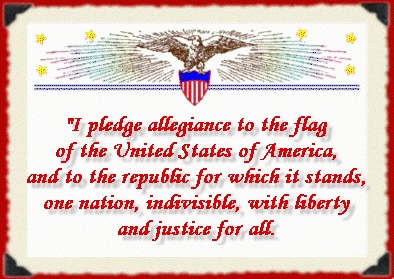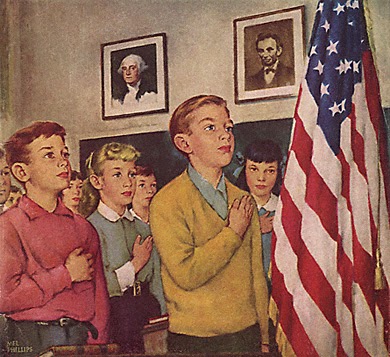Francis Bellamy, the author of the Pledge, was a former Baptist minister who preached that Jesus was a socialist. He was allied ideologically with his cousin, Edward Bellamy, one of the most renowned socialists of the late 19th century. Strongly opposed to the evils of capitalism,[31] Francis advocated income taxation, central banking, nationalized education, nationalization of industry, and other tenets of socialism. A primary objective of his was to replace the existing federalist view of the country (where states are sovereign) in the public's mind with a nationalist one that would open the way to creating a centralized government.
When provided the opportunity to write a pledge to the American flag in a campaign to sell flags to public schools, Bellamy turned to the words and principles of socialism.[32] Put simply, if American youth could to be taught “loyalty to the State”, it would pave the way for the socialist utopia that was described in his famous socialist cousin Edward Bellamy’s ‘Looking Backward”.[33] The central idea of “one nation” in the pledge was especially important for achieving his vision of the kind of consolidated, monopoly government necessary for a socialism to be adopted. Additionally, he considered adding the socialist bywords, “liberty, fraternity and equality”, but knew that state superintendents of education on his committee were against equality for women and African Americans.
As Bellamy believed youth should be trained in devotion to the State, the public schools as a government institution were the perfect setting for planting the requisite fervent loyalty and patriotism.[34] To promote the Pledge nationwide, a “National Public School Celebration” was held 1892 on Columbus Day. It was the first government sponsored propaganda event on behalf of the Pledge of Allegiance. It was a massive campaign that involved government schools and politicians throughout the country. Not only was the Pledge recited en mass for the first time at the behest of government, but public schools were promoted while private schools, especially parochial ones, were criticized.




